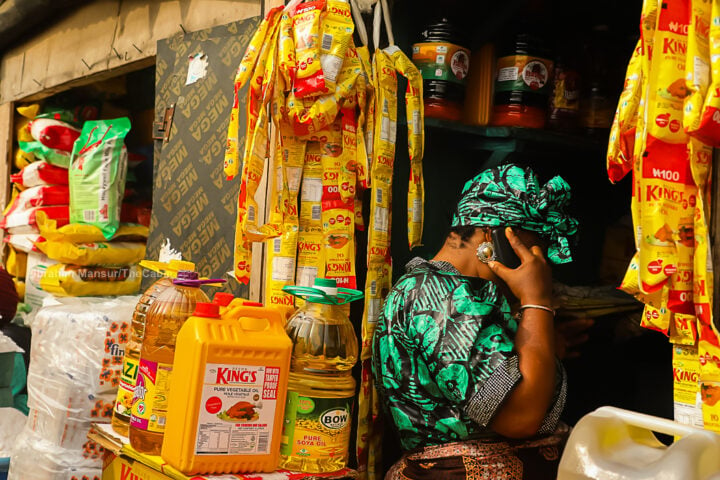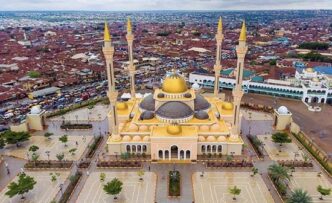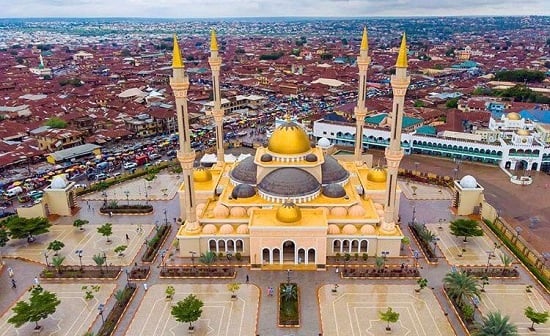Today, Governor Chukwuma Soludo will officially launch this year’s distribution of 1,040,000 economic trees’ seedlings at the Achebe Stadium, Onisha South LGA in Anambra. These seedlings are for the following plants: oil palm, African breadfruit, bitter kola, kola-nut and pawpaw.
Anambra’s model is to distribute these resilient and well-researched seedlings to households who will not only use the produce from these seedlings to feed their households but would contribute to Anambra’s food production ecosystem by selling their surplus produce. These households would, in effect, increase the food production capacity of Anambra by the aggregation of their excess produce on market days. In other words, households would not only be able to feed themselves but would be in positions to earn extra incomes. Evidence from last year’s seedlings distribution exercise shows that this model is robust.
With Nigeria’s food inflation at 40.87% and with some food prices having gone up by over 160% in the last year, Anambra’s model has the potential of reducing the hardship the current food prices have imposed on Nigerians.
On the national level, there are plans that can also help these potential household farmers. The federal government’s plan to create a national commodities exchange board that ‘’will review food prices as well as maintain strategic food reserve that will be used as a price stabilization mechanism’’ would also help these potential ‘small farmers’ from Anambra to get fair prices for their farm produce when they aggregate them in markets for sale.
Advertisement
And the economics makes sense. Take pawpaw, for example, which is sold for about N7.00 per gramme. (In Nigeria, an average size pawpaw is sold for about N2,000 to N4,000, depending on the city you live in). Within 12 months of planting, the type of resilient pawpaw being distributed to households in Anambra starts producing and would continue to produce fruit for 5-6 years. So, if a poor rural household is able to sell 15 pawpaw fruits in a day, this amounts to an average income of N60,000 per day ($40 per day with the current exchange rate). This is a good side income for any poor household.
The same economics applies to other seedlings being distributed free of charge by the Soludo-led administration. This model has the potential of fighting poverty heads on in Nigeria.
The first lady, Mrs. Oluremi Tinubu, was spot on when she advised Nigerians to embrace the culture of having gardens in their homes or in their villages, for those who may live in highly urbanized cities. The first lady advised Nigerians about the need to make individual efforts to address the nation’s food security issues a few weeks ago while unveiling her small garden in the State House which had seven types of vegetables including spinach, water leaf, bitter leaf, Ewedu, lemon grass, scent leaf and okro.
Advertisement
Madam Tinubu hit the nail on the head when she highlighted the power of individual actions. According to the first lady, ‘’single efforts may seem small, they can collectively make a substantial difference in advancing the food security initiative’’.
It is important to note that these advices do not in any way diminish the power of massive large scale and technologically enhanced farming – which is amongst the surest way to go in order to ensure food security. (Because Anambra is the second smallest state in Nigeria in terms of land mass, the state is determined to maximize the use of its land). Anambra State also encourages large scale farming. However, our argument is that on an individual scale, citizens can significantly contribute to food security while also increasing their income.
Anambra’s model and Madam Tinubu’s advice are not only economically feasible, they are also in line with the Good Book’s admonition where it admonished believers to sustain their households with the fruits of their gardens if possible. In Isaiah 65:21, the Good Book states: ‘’They will build houses and live in them, and they will plant vineyards and eat their fruitage’’. And the Good Book further adds in the subsequent verse: ‘’They will not build for someone else to inhabit, nor will they plant for others to eat’’.
Anambra’s strategy is not only to produce food with the seedlings distributed free of charge today. The government believes that the produce from these economic trees will also form the raw materials in the forthcoming revolution in the agro-allied industry in the state. Take palm oil, for example, its derivatives are used in the pharmaceutical, cosmetic, food and energy industries. The recently designed Anambra Mixed Use Industrial City (AMIC) will house facilities where these feedstocks are processed for other industries.
Advertisement
While the federal government continues to unveil measures to address Nigeria’s current food inflation issues, this column believes that Soludo’s model and Madam Tinubu’s advice have the potential of making significant impact when the efforts of millions of individuals are aggregated. The power of aggregation can be enormous. The power of aggregation also comes into play in other spheres, such as in finance, business and IT.
So, if you are anywhere near Onitsha, kindly drive to the Achebe’s Stadium, Fegge, Onitsha South LGA and collect your seedlings today! For those who cannot make it to Onitsha, the good news is that some of these seedlings are being distributed in various communities in Anambra.
Nwankwo is the special adviser to Soludo on special projects
Advertisement
Views expressed by contributors are strictly personal and not of TheCable.
Add a comment









